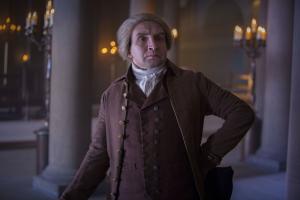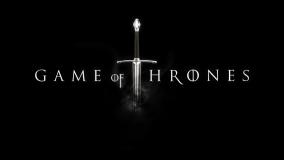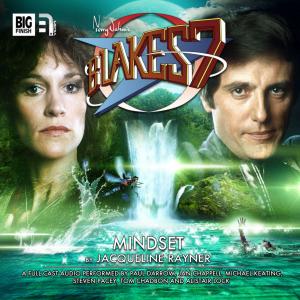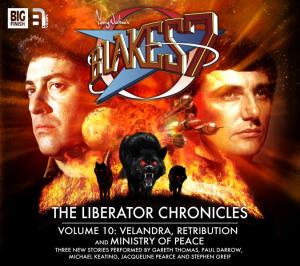Jonathan Strange and Mr Norrell: Episode One - The Friends of English Magic

Jonathan Strange and Mr Norrell Episode One
Written by Peter Harness
Directed by Toby Haynes
First transmitted 17th May 2015, BBC One
All of these series have succeeded on some levels, but floundered on others. Robin Hood sagged because it was trying too hard to hammer home social relevance, when it was set in the Twelfth Century and people simply didn't talk that way. The Musketeers does well at the swashbuckling action and stylised depiction of the period, but doesn’t have an SF or magical angle. Merlin mixed various tones but didn’t really hit stride until several series in, when Arthur went from Prince to King and the tone darkened. Atlantis just didn’t catch on.
Based on its first episode, Jonathan Strange and Mr Norrell might just have finally got it right. It’s early days, and there’s six more episodes to go, but everything seems to be in the right place.
Adapted from Susanna Clarke’s epic novel by recent Doctor Who scribe Peter Harness (the man who gave the Moon a yolk), and helmed by by one of its finest directors, Toby Haynes - this is ambitious stuff. Set against the background of the Napoleonic Wars, it’s the story of a meeting of two very different magicians in an alternative Britain where magic has returned after several hundred years of absence.
Opening up North with a magic circle entirely comprised of people who don’t practice magic, the curious Mr Segundus meets dour, fearful magician Mr Norrell (Eddie Marsan) and his manservant Childermass (Enzo Cilenti), and leads his circle (“The most magical men in Yorkshire”) to a spectacular demonstration by Norrell which not only scares them rigid, but contractually obliges them not to practice magic.
Having eliminated any possible competition, Norrell then relocates to London to offer his services in the war effort, but is quicky knocked back. He soon meets a vivid and scene-stealing cast of characters, menacing street magician Vinculus (Paul Kaye), preening would-be impresario Mr Drawlight (Vincent Franklin), and most fatefully – The Gentleman with the Thistle-Down Hair (A sinister and impressive-haired Marc Warren, possibly channelling David Bowie's Goblin King from Labyrinth). The Gentleman offers Norrell a bargain, a bargain that will doubtless lead only to bad things. Eddie Marsan gives an excellent, layered performance as Norrell - a gifted user of magic, and a man of some principle, but scared and flawed at the same time.
Meanwhile, likeable fop Jonathan Strange (Bertie Carvel) seeks a purpose in life whilst pining for his best friend’s sister, and is unexpectedly given it when he finds Vinculus under a hedge. The street magician recognises him (and also Norrell, who he's already scared half-witless in London) as one of two magicians named in a prophecy, and sells him some spells. It turns out Jonathan’s a natural. Carvel is great fun as Jonathan, a sort of cross between Withnail and Bertie Wooster. He gets far less screen time than Norrell, and the titular duo don't meet in this first episode, so it remains to be seen whether they have chemistry or not. I have a feeling from preview clips released so far that they'll complement each other nicely.
This is by turns witty, creepy, and visually stunning stuff. The pace is luxurious, and the script crackles with well-observed dialogue from Harness. The supporting cast is superb, with particular props to Cilenti's Childermass, (who looks wearily on the verge of hitting people throughout), Warren's lithe, whispering, malevolent Gentleman, and perhaps most of all - Kaye, who walks a line between sinister and cartoonish, but unsettles through his manic energy, and rants obliquely about a Raven King whilst still sounding believable.
Haynes was always one of Who's more filmic directors, and he impresses throughout - good with a camera, and with some impressive set pieces up his sleeve - like the creepy arrival of the Gentleman, Vinculus's unsettling tarot card trick, and Norrell's animation of the stone figures that sends a whole magic circle of scared Yorkshiremen packing.
So far so good. Will it catch on with the public? Who knows? Ratings do the talking, but, based on this first episode, this is going to be seven Sunday evenings well-spent.



 Written by Jacqueline Rayner & Iain McLaughlin Directed by Lisa Bowerman Big Finish Productions, 2015
Written by Jacqueline Rayner & Iain McLaughlin Directed by Lisa Bowerman Big Finish Productions, 2015 
 Written by Matt Fitton, Jonathan Morris, Andrew Smith, John Dorney Directed by Ken Bentley Starring: Lucy Fleming , Ian McCulloch, John Banks, Louise Jameson, Sinead Keenan, Caroline Langrishe, Adrian Lukis, Chase Masterson, Terry Molloy, and Carolyn Seymour Big Finish Productions – June 2014
Written by Matt Fitton, Jonathan Morris, Andrew Smith, John Dorney Directed by Ken Bentley Starring: Lucy Fleming , Ian McCulloch, John Banks, Louise Jameson, Sinead Keenan, Caroline Langrishe, Adrian Lukis, Chase Masterson, Terry Molloy, and Carolyn Seymour Big Finish Productions – June 2014 





